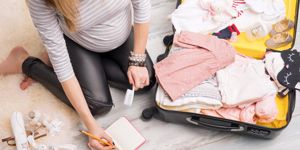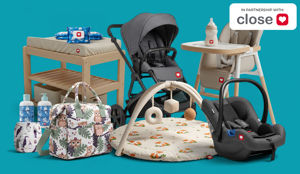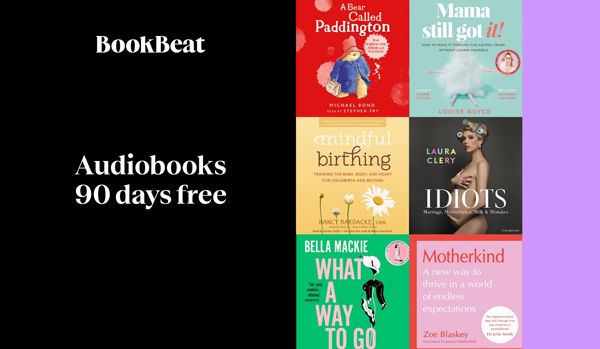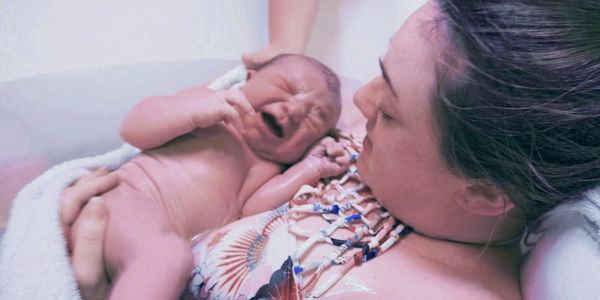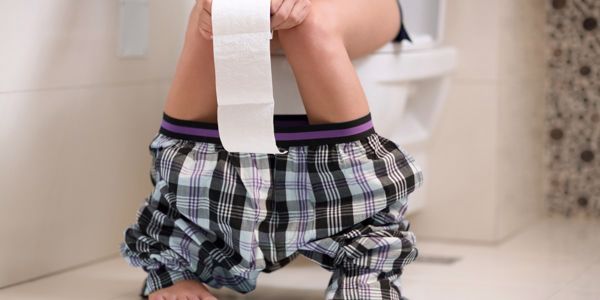Preparing for your stay in hospital when the time comes to give birth to your perfect little baby is an exciting time. Much like packing for an upcoming holiday (except holidays do not involve squeezing a human head through your pelvis, okay poor analogy - sorry!), packing for the big day can be a bit exciting, after all, you’re on the home stretch.
As you enter your third trimester, it would be a good idea to start thinking about what you’re going to need, want and all the ‘just in case’ items you’ll want to pack, ready for the exciting, excruciatingly painful, beautiful moment your baby arrives in this world. At about week 34, it’s considered a good idea to have your hospital bag ready in case the little nugget decides to come early.
With this checklist, you’ll be able to get packed and prepared with everything you and your baby could possibly need whilst in the maternity ward. We’ve also included a little checklist for your birthing partner too, after all, they’ll need things too. Keep your hospital bags in the car or by the front door so that you’re able to pick it up and go at a moment’s notice when needed.
Make sure you choose a bag that is not too bulky/heavy and allows quick, easy access to everything without rummaging around forever trying to find one tiny pot of Sudocrem or a clean pair of knickers. Grouping things in little bags, keeping all toiletries, creams and sanitary pads, and of course your makeup for those after birth shots (if you’re that way inclined) in a separate toiletry bag for quick access. A great tip is to get large zip seal bags that can be labelled so that your birthing partner, nurse or midwife can easily find things for you.
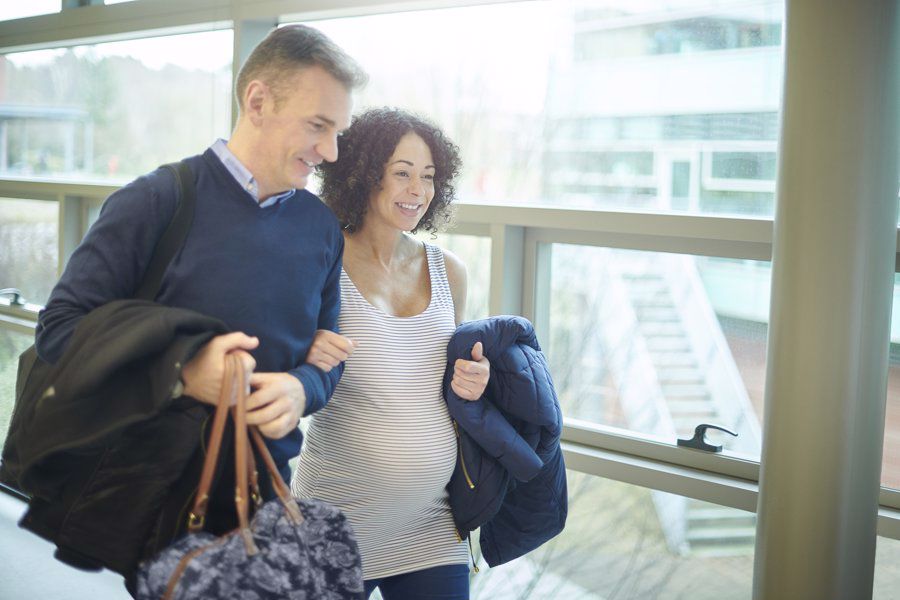
For Mum - Labour and Delivery
Hospital file - containing your birth plan and any details/paperwork you may need on the ward. Make sure you have multiple copies printed and available for doctors and nurses so that they are able to easily refer to it in-case last-minute questions arise.
Dressing Gown - unless you want your bum on show as you pace the ward waiting for your contractions to build and ease, a comfortable dressing gown to wear in the ward and protect your modesty an absolute must-have.
Socks - hospitals aren’t the warmest places on earth, often with cold floors. Even though maternity wards are mostly very well heated, It might be nice to pack them to keep your feet warm during labour while the rest of your body is exposed, just in case.
Slippers and flip-flops - we all know how impossible bending over is when you’re pregnant so having slippers you can just slip/slide on so that you can walk around the hospital ward and bring flip-flops to use in the shower.
Lip Balm - balms like dual-use nipple and lip balm is great for when your lips get chapped during labour and heal your sore nipples if you’re breastfeeding afterwards. Keeping something like vaseline handy will be a godsend when you need them.
Massage oil/Body lotion - anything to keep you relaxed in the lead up to labour.
Water spray and sponge - pushing a baby out of you is tiring work and you may find yourself getting hot, so a little spray of cooling water on your face and neck or a damp sponge to hold on your forehead will help cool you down.
Pillow(s) - not everyone likes hospital pillows. That L or U shaped cushion you’ve been obsessed with for the past few months could help you relax and be comfortable during pregnancy so be sure to bring your favourite pillows with you.
Books/Magazines/Movies - the wait between contractions can sometimes be quite tedious, so taking a Kindle, tablet with downloaded shows and films, book, magazine or crossword book with you to keep you occupied, and often, your mind off the pain in the build-up to labour can be a welcome relief.
Eye mask and earplugs - you’re not the only one on that ward. Other babies, women and machines share this side of the hospital with you. If you’re a light sleeper, these are essential to getting your much-needed rest.
Spare clothes and underwear - birth isn’t mess-free. Make sure you pack some comfy clothes (we recommend stretchy leggings, oversized tops as well as at least 5 pairs or more of comfy ‘Bridget Jones’ knickers that you don’t mind getting messy and large enough to hold a maternity pad in place. A comfy pair or two of pyjamas are also a must! Don’t forget to pack an extra outfit for your trip home.
For Mum - After Delivery
Nightdress - although this may seem old-fashioned, two-piece pyjamas set after birth can be too much of a hassle to put on. Pack at least one soft, loose-fitting nightdress, preferably a maternity one if you are breastfeeding for easy access to everything.
Heavy-duty maternity pads/pants - although you will be given some at the hospital, it’s always a good idea to have some handy, just in case. It’s normal to bleed quite a bit after birth and maternity pads are much more absorbent than normal sanitary pads. Aim to change them every 1-2 hours but within a few days, as your womb lining returns to its pre-pregnancy state, bleeding will decrease.
Nursing Bras - even if you’re not breastfeeding, these bras are super comfortable and will give you the comfort and support you need as well as give you quick access to start breastfeeding your newborn if you’ve decided to feed this way.
Toiletries - you will want to shower, quite a few times in fact! Towels, tissues, hairbrush, deodorant, toothpaste and toothbrush, face wash, body wash, shampoo, conditioner, hairdryer, clips, hairbands and makeup (if you want it) are essential. Also, bring a few plastic bags for you to pop dirty clothes in. Don’t forget your skincare products like moisturisers as you may find your skin is particularly dry before and after labour. Other creams and oils you can bring include stretch mark cream, serums and perineal cream.
Glasses/contact lenses - this may be obvious if you need them day-to-day but they are often forgotten when packing the hospital bag. Don’t forget your contact lens solution too if you wear them.
Phone and charger - you’ll likely want to take plenty of photos, make phone calls and keep your friends and family up to date, so don’t forget your phone and a charger.
Snacks and drinks - labour can sometimes take a very long time, so you might consider taking a few snacks for before and after birth. Consult with your midwife before eating any, whether you can actually eat some, as high-risk pregnancies may require you to remain nil-by-mouth until your baby is born in case they need to medically intervene and give you an anesthetic that may not work if you have eaten. If you have any allergies or intolerances, it’s also a good idea to bring your own food in case the ward does not have any food suitable - plus, hospital food isn’t the greatest!
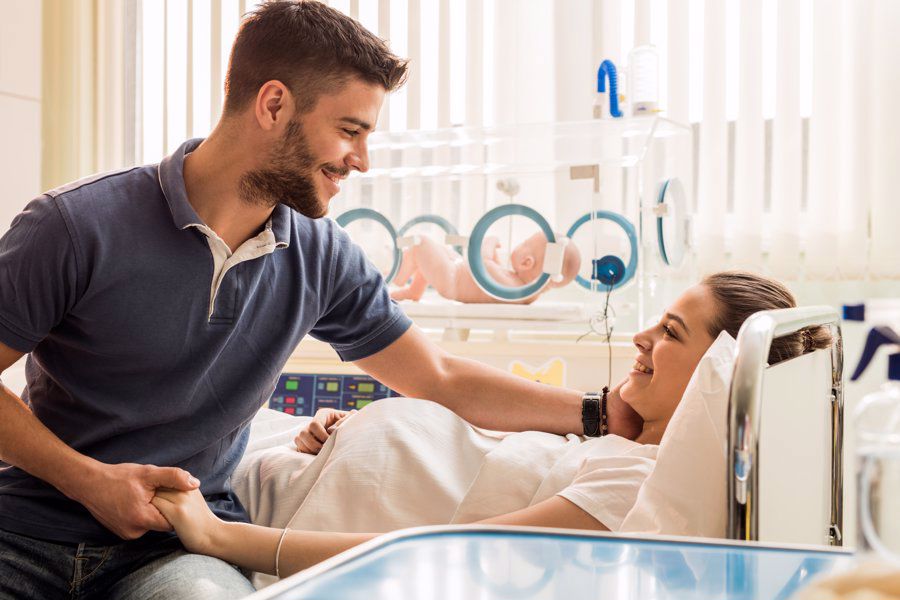
For your Birthing Partner
Snacks & Water - much like mum, you’ll need some sustenance to keep you going, keep you alert and hydrated for the long hours at mum’s side.
Phone/camera/video camera plus chargers and batteries - if you’re planning on capturing the labour on camera, or just want to take photos afterwards, make sure you’ve got the right equipment and suitable batteries/chargers to keep them ready for use.
Spare clothes - labour is always very unpredictable, so it’s a good idea to bring a change of clothes, just in case, especially if you’re staying overnight with mum.
Small Pillow - you too may appreciate getting a little bit of rest during downtime!
Entertainment - Don’t let mum hog all the crosswords! Bring your own source of entertainment, as well as being able to offer it as a backup to mum.
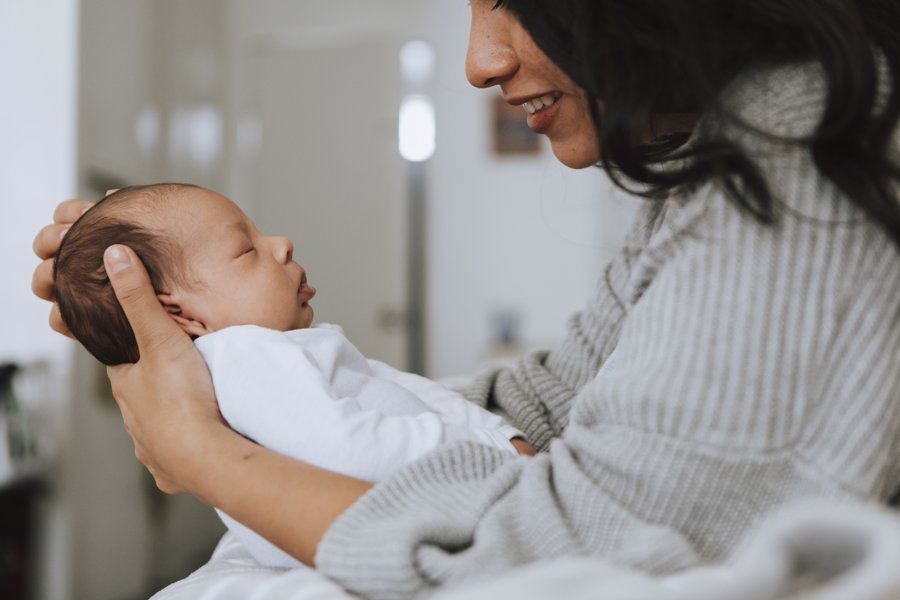
For your Baby
Babygrows - bring several, of varying sizes. There’s no telling what size they will fit into once they’re born. Hospital policies, however, do restrict what you can dress your newborn in, so consult with your doctor in advance about what to pack. Additional layers and items that fasten at the front are highly recommended.
Muslin cloths and bibs - After being fed, it's normal for a baby to throw up a bit of spittle, as well as dribble. Protect your clothes from these lovely liquids by draping them over your shoulder or arm, or loosely drape around your baby’s front to catch any dribble.
Socks, scratch mittens and booties - Newborns struggle to regulate their body temperature straight away and can get cold very easily. Even with skin-to-skin contact [insert link], it’s important to layer up and add mittens, booties and other clothing accessories such as hats and socks to ensure your baby stays warm.
Blanket - While hospitals do usually provide these, a blanket of your own that you can take home is always good to have on hand to take them home in, and use during skin-to-skin contact.
Nappies - Bring a whole pack of nappies with you as babies will need changing up to 12 times a day [insert link]. Start stocking up and make sure you have enough in a few sizes for when your baby arrives. Even if you plan to use reusable nappies, disposable ones are recommended for whilst you are in hospital while you lack the facilities to clean them for re-use.
Wipes - a newborn’s skin can be quite sensitive. It’s best to only use cotton wool balls and water to clean them initially, or sensitive baby wipes such as Water Wipes in the first weeks, but there are a number of other uses wipes can be used for, for mum so a pack can be handy.
Clothes - a going home outfit, as well as your packed babygrows, is a good idea to bring. Consider the weather as a bodysuit, booties and hats can be good for warmer months, but a winter outfit to include mittens, a jacket and a snowsuit is ideal to take your baby home.
Car Seat - Ensure you have the correct car seat [insert link] installed in your car around the same time you pack your baby bag so that it’s ready for the hospital. If you are taking a taxi home, make sure you check with the taxi company that they have the correct safety features to transport a baby in a car seat.

